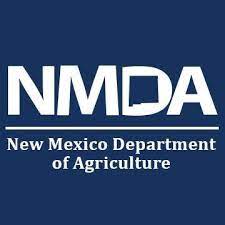“We went on a trade mission to Vietnam,” Witte said, “and we went to a culinary school that trains chefs. The Dean of the school was aware that pecans were healthy, but was not familiar with using them in recipes, as they aren’t native to Asia. We sponsored a contest at the culinary school for the chefs in training,” Witte explained, “and the winner with the best recipe using pecans received a year’s tuition free. It was a huge success.”
The New Mexico Department of Agriculture (NMDA) has a broad mission that encompasses all things agriculture in New Mexico. Jeff Witte, the NMDA Secretary of Agriculture, noted, “We touch every citizen, every day,” to highlight the impact his office has on the lives of New Mexicans.
The NMDA is housed at New Mexico State University in Las Cruces, and the Secretary is appointed by the Board of Regents. Jeff Witte serves as the Secretary of Agriculture and Director of the AG department at NMSU. Witte describes his role at NMDA as both a “regulator and marketer” of New Mexican products relating to agriculture.

A pound of beef is a pound of beef
“Some New Mexicans may not realize that when they go to the store to buy one pound of beef, the NMDA is the government agency ensuring you are getting one pound of beef,” Witte said. “Not almost a pound, not close to a pound, but a pound. We make sure you’re getting what you paid for.”
Witte continued, “After you’ve purchased your beef, the NMDA makes sure the gas in your vehicle meets the standards required by the government. In New Mexico, when you pay for 88 octane, 91 octane, or any other gasoline, the NMDA ensures the gas you pay for is the gas you receive, and that the gas will get you, your vehicle, and your beef home.”
Protecting livestock and the food we eat
“The NMDA has a veterinary diagnostic lab,” Witte explained.
“If we have an instance of an animal(s) getting sick or dying, our veterinary diagnostic lab gets involved to determine why. In the lab, a necropsy (like an autopsy for animals), is performed to ensure the disease doesn’t spread to other livestock or humans. We are very thorough.”
Witte explained that the NMDA also checks livestock feed to ensure the animals are healthy through their life cycle, and thus ensures the public has food that is safe to eat.
NMDA policy division: From New Mexico to the world
One of the things Secretary Witte enjoys about his job is acting as a goodwill ambassador to other nations while marketing New Mexican products and crops to them. Witte described one such effort in Vietnam.
“We went on a trade mission to Vietnam and went to a culinary school that trains chefs. The Dean of the school was aware that pecans were healthy, but was not familiar with using them in recipes, as they aren’t native to Asia,” he said.
“We sponsored a contest at the culinary school for the chefs in training,” Witte explained, “and the winner with the best recipe using pecans received a year’s tuition free. It was a huge success. The students were enthusiastic about pecans after that, and as they graduated and moved into their careers, they introduced recipes with pecans to other chefs, and currently, New Mexican pecans are popular in Vietnam!”
Cross-border goodwill and trade
“Mexico is a big trading partner with New Mexico,” Witte said, “and we have an excellent relationship through the NMDA.”
The largest land port in the United States is in Santa Teresa, where cattle and other products are traded to and from Mexico and New Mexico.
“The Chihuahua Cattlemen’s Association owns the port on both sides of the border,” Witte said, “and the relationship is good for New Mexico and good for Mexico.”
“We export a lot of crops and products to Mexico,” Witte said, ticking off a list including seed stock, pecans, and wine. “There’s really quite a bit, and the trade goes both ways.”
N FACT and Specialty Crop Block Grant
Working with four other states to lobby the government on specialty crops, N FACT was formed. Each letter in the name corresponds to one of the states involved: New Mexico, Florida, Arizona, California, and Texas.
The group went to Capitol Hill to lobby Congress for support of specialty crops. (The USDA defines specialty crops as anything other than corn, wheat, or soybeans).
The group was successful, and now the NMDA oversees the Specialty Crop Block Grant program, used to help support the New Mexican specialty crop industry.